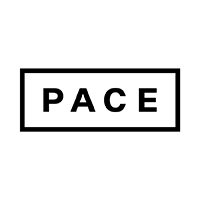I Would Be Wary Playing God: Interview with Pushpamala N.
By Hemant Sareen

PUSHPAMALA N., Yogini from the series "The Native Types," 2004, C-print on metallic paper, 24 × 20 in. Courtesy Bose Pacia, New York, and Devi Art Foundation, Gurgaon.
Bangalore-based Pushpamala N., the 55-year old Indian artist holds an email exchange with ArtAsiaPacific associate editor, Hemant Sareen, on the nuances of her proposed boycott of Deconstruction India, the first major show of contemporary Indian art in the Tel Aviv Museum, in April 2012. Of the original tally of 24, only four have joined the campaign for the cultural boycott of Israel.
Were you aware of your inclusion in the show before you received a formal invitation?
Curator Tami Katz-Freiman contacted my gallery, Chemould Prescott Road in Mumbai about wanting some of my work for a show in Tel Aviv. Since I had not heard about the show, I wrote to her and asked her for a concept note and list of artists [featured in it], as I think it is very important to know the context of the exhibition. In fact, at the time I was interested in going to Israel if I got the opportunity to see for myself what the situation was. When I read the concept note I realized that it was an official state show in the Tel Aviv Museum and did not want to participate. I also have problems with the concept.
Did you have time to think about your decision? Did you consult other participating artists?
This was my [own] decision to decline [participation in] the show and call the other [participating] artists to join me in the boycott. I thought about it and felt it was right. Also, [since] I am in Bangalore now and most of the artists are in Delhi or Mumbai…[consultations in person are not possible]. The joke is that some of the artists I spoke to from the curator’s list were mystified, as they didn’t even know about the show!
How many have boycotted the show?
Artists Anita Dube, Amar Kanwar, and myself, from the present curators list, have declined to show. But some others like Nalini Malani refused much earlier without going public. Ashok Sukumaran wrote that he had been approached too. I decided to go public to put the issue in the public sphere. The curators have been approaching artists since several months it seems. Several people from the art world have written [in] support for us in a short time.
You are boycotting the show in support of the Palestinian Civil Society Movement's Boycott, Divestment and Sanctions (BDS) campaign. Is there any personal reason or is it a more impersonal and humanitarian motivation that made you boycott the show?
There is no personal reason!
I believe in Boycott as a non-violent strategy to bring about change. The Palestinian movement is inspired by the earlier International boycott against Apartheid South Africa which finally led to sanctions and brought about the dismantling of the apartheid system. But I am not naïve to think that anything is instant. Every action is a step or a building block.
I am one of the signatories of the India campaign for the Academic and Cultural Boycott of Israel. To clarify some confusion about it, the Boycott is [aimed] at the mainstream and the state institutions complicit in state policy—and not [against] individuals. It exists as long as the Israeli state continues with its illegal apartheid policies and [ignores] the rights of the indigenous Palestinian people. I would like to continue to have a long-term relationship with the Palestinian groups and maybe work out some projects in the art world.
Critics of your boycott remind you of other countries and regimes with equally bad human rights records, China for instance, where Indian artists are regularly featured. How would you respond to that?
Critics of my boycott start with the US and Europe and then go on to China! People are mistaking [my stance] as taking a high moral ground. The call for boycott, as I have mentioned, is a collective strategy to bring about change in a worst-case scenario, it is not about so called “good people” punishing some “bad people” for their “bad deeds”. It is of course based on sympathy and support for the desperate and unchanging scene [the Israeli occupied territories].
Recently, there was an international petition protesting against the Chinese government’s arrest of Ai Weiwei, which many of us signed. However, neither Ai Weiwei nor any Chinese artists or groups, have sent an international Boycott call. In fact Ai Weiwei had worked, just before [his arrest] for the Beijing Olympics. Artists have a complex relationship there with the government, are critical, but also probably disinclined towards outside interference, just as the Iranian people are wary, or we [Indians] are.
In this case, I would have refused individually anyway, but I made a general call to the artists in response and in solidarity with an existing movement. I would be careful about playing God and asking for boycotts left and right, unless there was a credible movement. And you can't have a boycott or strike against everything—it would be ridiculous.
Why is it that in the case of so-called rogue countries selected by the West, the sanctions are taken for granted, while Israel which is breaking all international laws has so much sympathy?
What would you say to those Indian artists still insisting on participating in the show?
I think it is each one’s individual choice. Everybody is thinking about it and [form] his or her own opinion. One thing is sure: there has been a lot of debate generated, and still going on. I get several letters everyday, each with different positions. Argument is interesting; it galvanizes the art scene when it is in danger of becoming soporific.
And have you noticed something? For the last decade the only public discussion about Indian art was art market, prices and auctions. Now suddenly everyone is talking about the Palestine issue! Isn’t that interesting?
Has the Indian Ministry of Culture been in touch with you on this issue?
No, why should they? Sounds Kafkaesque. It is my right to agree or refuse to participate in any event. And this is a funny question because part of the argument against cultural boycott is that the cultural is separate from the political!






